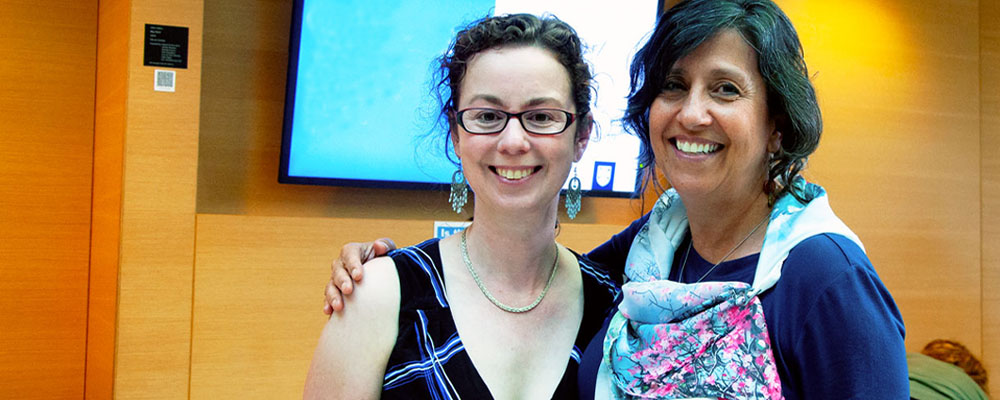
Our 2020 Stephen Daniel Pope Graduate Award and Master-Level Outstanding Presentation/Publication recipient is doctoral candidate, Leslie Shayer.
Shayer has recently graduated with her Master of Arts in Education degree – her oral examination was the Okanagan School of Education’s first remote defence completed in March of this year! Her thesis research considered the impact of contemplative (e.g., mindfulness) practices on math anxiety (individuals becoming emotionally disturbed in the presence of mathematics).
“We all know people who avoid math, whether they do so in their daily lives, or overall in their education or career,” says Leslie. “My case study supported my hypotheses to decrease math anxiety via guided breathing, visualization, and meditation techniques.”
In the pursuit of her MA, Leslie also worked on two funded projects with Dr. Karen Ragoonaden: one on Mindfulness and Indigenous Knowledges: Shared Narratives about Identity and Well-Being; and another on a research cluster studying Culture, Creativity, Health and Well-Being.
Leslie has been a Professor of Mathematics and Statistics at Okanagan College, Kelowna Campus since 2006.
Question and Answer Session with Leslie
What does receiving this award mean to you?
It is an honour to receive the Stephen Daniel Pope Graduate Award. I strive to be more like Dr. Pope by making contributions to the public education system in B.C. I have been teaching math at the post-secondary level since 2000, in B.C. since 2005. I have seen students struggle, all for the wrong reason. There is a belief in my potential as an Education student and what my research can do. With this award goes large shoes… and I have small feet…. All I can say, is that I will do the best that I can. Perhaps some insoles will help!
What is your research project, and what stage are you at?
I am officially beginning my Ph.D in the fall at UBC Okanagan and plan to extend my Master’s Research to be more inclusive of different genders, ethnicities, as well as Indigenous students. If I can help anyone feel better about math to make learning easier, then that would be a great success.
Ideally, I plan to add to the body of knowledge of how contemplative practices can improve the educational environment for marginalized students, in particular, by minimizing marginalized students’ anxiety in the post-secondary mathematics classroom, which in turn, could improve overall math performance. Marginalized students here are women and non-binary individuals, non-white ethnic groups and Indigenous students.
Also, I would like to contribute to the important theoretical dialogue regarding diversity and marginalization in post-secondary classrooms, especially ones containing mathematics and statistics. I could stretch and say that poor performing, math-anxious students are also marginalized. There is research to support that as well, but there are many hurdles to overcome beforehand.
What difference do you hope your research will make?
I’ve been teaching math, primarily at the post-secondary level for twenty years. During that time, I have seen a lot of struggling students. I am hoping that my research will offer ways to support students to gain some ease with math, achieve greater math success as well as more diverse career options. Also, and perhaps more importantly, I would like to use math to balance the scales for all as, according to Mighton, “math is the key to a more equitable society.”